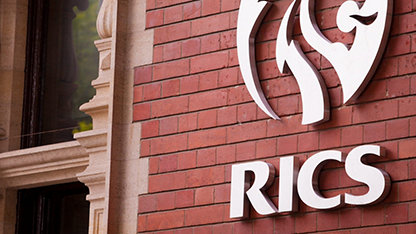The long-awaited Levelling-up and Regeneration Bill received Royal Asset at the end of October 2023 and now officially becomes the Levelling-up and Regeneration Act 2023.
The Act, containing over 530 pages of detail, enshrines into law the government's long-term commitment to the levelling up agenda, whilst undertaking a series of major reforms across the built and natural environment.
It will create significant opportunities for the built environment, from delivering much-needed planning reform to giving communities a louder voice over placemaking. It will help unlock some of the UK's challenges in delivering new housing, regenerating high streets, and bringing vacant properties back to life.
Planning reform is featured heavily in the Act, with new policies including RICS calls for the digitisation of planning services, and the strengthening of national model design codes so local planning authorities can shape decision-making based on locally prescribed needs. Furthermore, it will allow planning authorities to refuse applications where the developer has a history of not delivering on commitments.
Residents will be given greater power over developments and changes within their street, with the ability to put planning decisions that meet design preferences to a ‘street vote’. There are still questions on how this will work in practice with resourcing and the ultimate decision-making of planning authorities.
It also replaces the existing Environment Impact Assessments framework with the new Environmental Outcomes Report, which will assess plans against environmental outcomes, alternative solutions and reasonable mitigation and compensation measures.
The new Infrastructure Levy is designed to give more control over developments to deliver on local needs, and we will continue to work alongside our members to provide expertise to the government as the policy develops.
One significant policy not included in the Act that the government had intended to include, is the relaxation of nutrient pollution rules that have resulted in an estimated 150,000 homes being blocked in the planning system.
Overcoming these existing bottlenecks is crucial for meeting housebuilding targets, although we recognise that this cannot come at the detriment of the environment. The UK needs further investment towards mitigation and treatment works in our waterways, as well as a push to build greener, more energy-efficient homes that significantly limit resulting pollution. The Act now presents an opportunity to set out a long-term vision for sustainable house building in the UK, including the government defining how future housing needs will be determined.
RICS looks forward to continuing discussions with DLUHC with regard to Clause 237. RICS will be conducting our own independent review every five years.
It is important that we maintain the Institution’s independence to develop and uphold standards and regulation for the sector, whilst working in the public interest to address the biggest challenges facing our built environment.
Commenting on the Act, RICS CEO Justin Young said:
"Public wellbeing and creating vibrant communities are a consistent theme throughout the Act.
"For RICS, it creates a range of opportunities for members to support the delivery of the levelling up vision. It also reiterates the importance our profession has in advising and delivering safe, green and affordable homes, town-centre revitalisation and infrastructure needs to unlock social mobility and sustainable investment."












